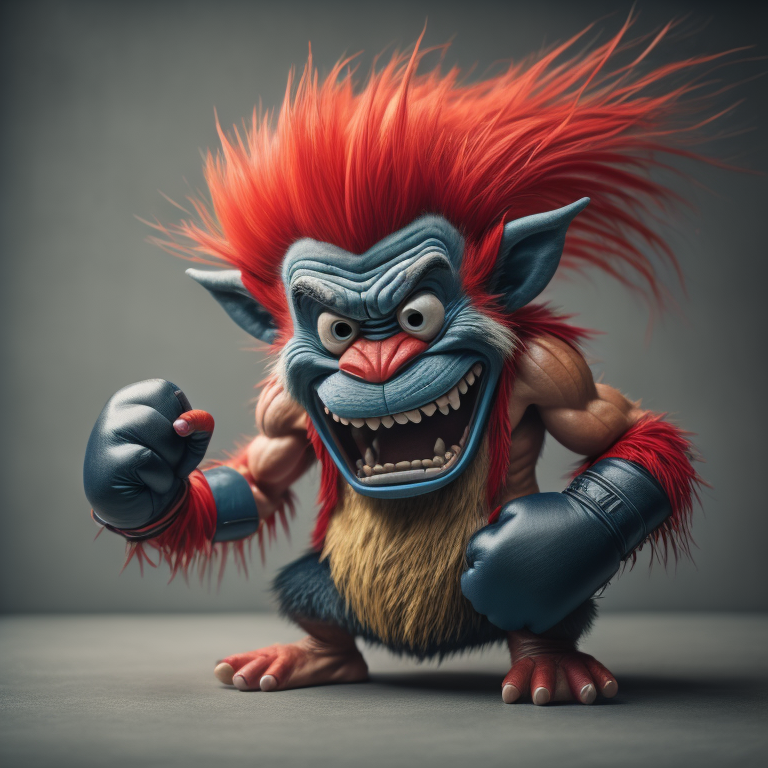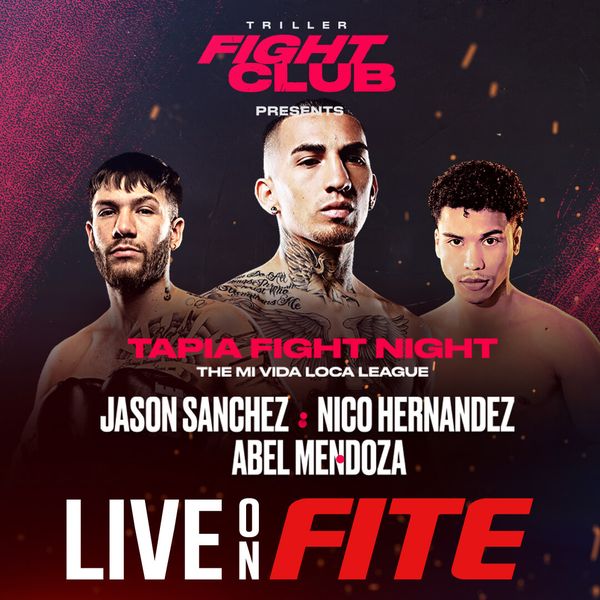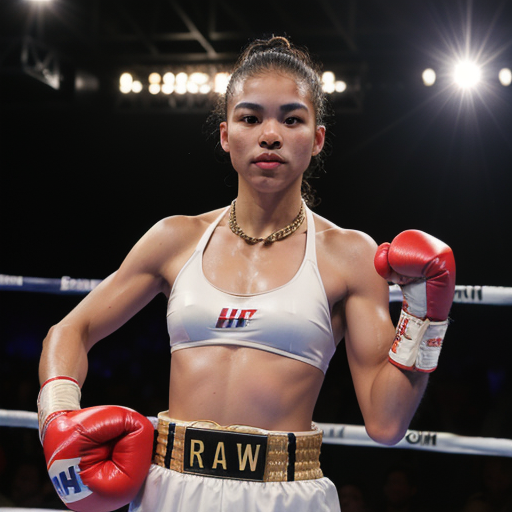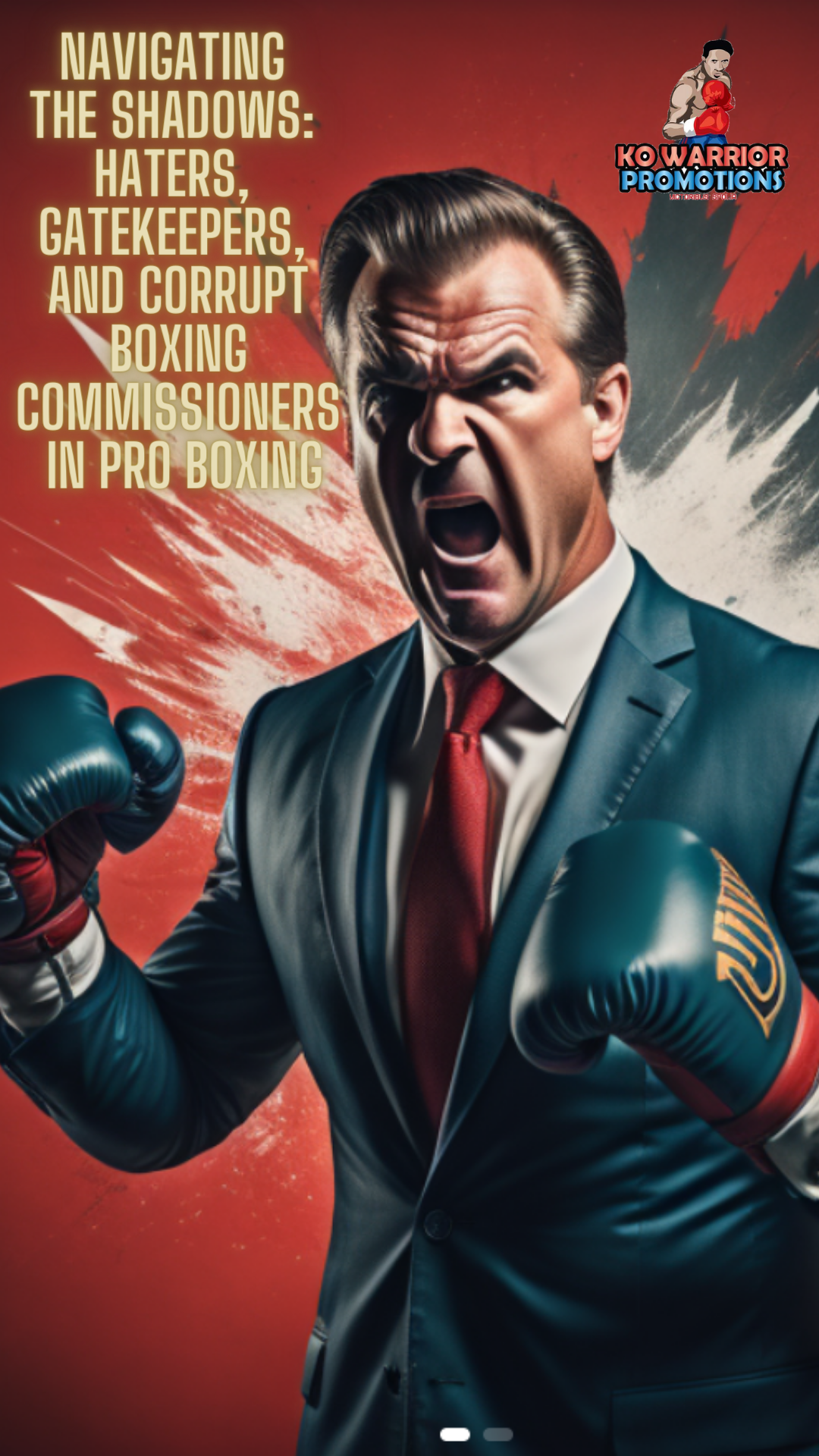In the glitzy world of professional boxing, where champions rise and legends are born, there exists a darker underbelly that can hinder a fighter’s journey both inside and outside the ring. Beyond the challenges posed by haters and gatekeepers, the sport also grapples with another formidable adversary: corrupt boxing commissioners. This articledelves into the intricate dynamics of pro boxing, exploring the characteristics of these adversaries and the strategies fighters can employ to overcome the hurdles they present.

Haters in Pro Boxing: The Poison Pen Warriors
In the age of social media, where every opinion can be amplified, haters have found their niche in targeting successful and upcoming boxers. Fuelled by envy or personal vendettas, they resort to online trolling, unwarranted criticism, and malicious comments. Haters often appear when a fighter gains popularity or success, seeking to tarnish their reputation and sow seeds of doubt among fans and peers.
For boxers, the key to dealing with haters is to develop thick skin and cultivate a strong sense of self-belief. It is essential to recognize that such negativity stems from the haters’ own insecurities and should not be taken personally. Focusing on training, improving skills, and surrounding oneself with a supportive team can help boxers shield themselves from the toxicity of haters.


Gatekeepers in Pro Boxing: The Guardians of the Gates
Gatekeepers in professional boxing hold the keys to opportunity. These influential individuals, often established boxers, trainers, managers, or promoters, determine who gets a shot at the big leagues and who remains on the periphery. While some gatekeepers support upcoming fighters who may still be learning how to get into pro boxing, others may favor those with lucrative sponsorships or personal connections, leaving talented individuals with limited chances to showcase their skills.
Gaining access to reputable trainers and managers can be a daunting task, especially for fighters without prior connections. However, persistence, networking, and unwavering belief in one’s abilities can help break down these barriers. Building relationships with respected figures in the boxing community and making a name for oneself through relentless dedication can open doors that were once closed.

The Bane of Corruption: Unveiling the World of Corrupt Boxing Commissioners
In addition to haters and gatekeepers, the sport of professional boxing has, at times, been marred by the influence of corrupt boxing commissioners. These officials hold significant power, often overseeing regulatory bodies and decision-making processes that impact fighters’ careers.
Corrupt commissioners can manipulate match outcomes, enforce biased judging, and prioritize personal interests over the integrity of the sport. Such actions not only taint the reputation of professional boxing but also pose a severe threat to fighters’ livelihoods and safety.
Challenges in Combating Corruption
Combatting corruption in professional boxing is a complex endeavor, as it requires rooting out individuals who may have entrenched themselves in influential positions. The lack of transparency in some boxing organizations can make it challenging to identify and prosecute wrongdoers effectively.
Moreover, fighters may fear retaliation or blacklisting if they speak out against corrupt practices, creating a culture of silence that perpetuates the problem. This compels the boxing community as a whole to address the issue collectively and create an environment where transparency and accountability prevail.

Strategies for Change
- Independent Oversight: Establishing independent bodies to oversee boxing commissions and ensure impartial decision-making is crucial in combating corruption. These oversight bodies should consist of individuals with no vested interest in the sport, maintaining transparency and objectivity.
- Whistleblower Protection: Implementing robust whistleblower protection programs can encourage fighters, trainers, and other stakeholders to come forward with information about corrupt practices. Anonymity and safeguards against retaliation are vital to encourage transparency.
- Athlete Empowerment: Educating fighters about how to get into pro boxing, ensuring they know their rights, and providing the avenues available to report corruption is essential. Empowered athletes are more likely to take a stand against wrongdoing and be agents of change within the sport.
- Global Collaboration: Corruption in boxing is not limited to one region; it is a global issue. Collaborating with international organizations and sharing best practices can strengthen the fight against corruption and promote ethical practices worldwide.


Rise Above the Haters
Professional boxing’s allure and excitement are matched only by the challenges that boxers face within and outside the ring. Haters, gatekeepers, and corrupt boxing commissioners pose formidable hurdles, but the sport’s resilience lies in the tenacity of its athletes and the support of a unified community.
To overcome the shadows that threaten the integrity of professional boxing, fighters must cultivate a strong sense of self-belief, surround themselves with a supportive team, and rise above the negativity of haters and gatekeepers. Simultaneously, the entire boxing community must join hands to combat corruption, promoting transparency, accountability, and fair play.
By embracing change and fostering a culture of integrity, professional boxing can regain its reputation as a noble sport where talent, dedication, and sportsmanship shine brightly, guiding the path of champions to greatness.

